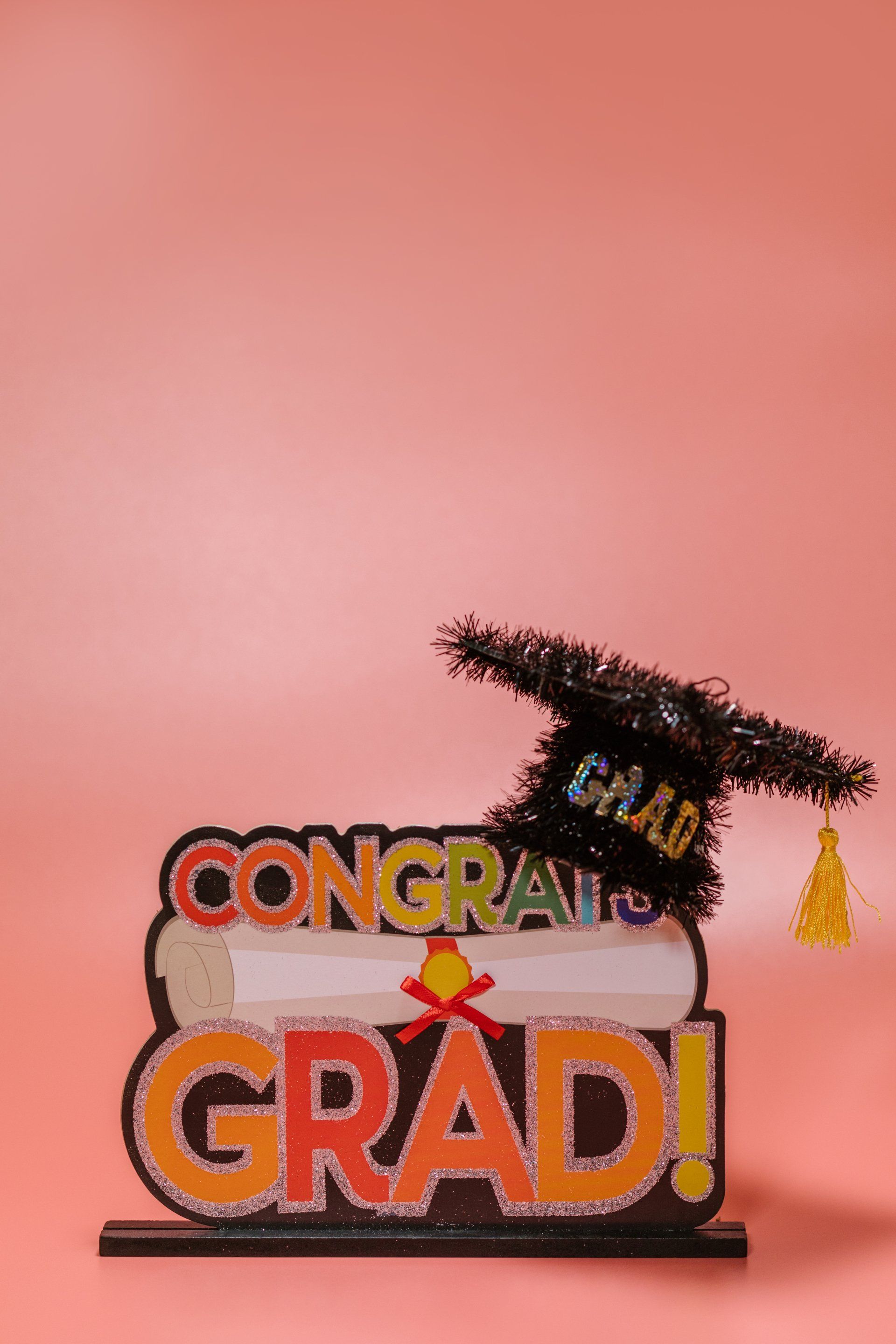Blog

By Emma Peterson
•
10 Jul, 2023
You probably don’t think going to a small liberal arts school in rural Iowa is the most exciting college experience ever. Frankly, in most ways it’s not. We, at Grinnell College, are not immune to the occasional wistful desire for the dazzle of the city. We silently envy the summertime stories our high school friends tell us about daring adventures at big schools with frat parties and nightclubs. On certain winter days, the frostbitten hills and stark brown cornfields surrounding our campus feel more like prison bars than wide-open farmland. So yes, it’s boring here sometimes, and for sure it’s flawed. But though I often imagine what college life would have looked like at another school, I do not regret coming here. I love Grinnell, for all its beautiful people, for the traditions we fight to keep alive, and for the culture and character of our Midwestern town. Above all, life at this tiny, middle-of-nowhere liberal arts college is deeply personal. My college, and the small-town community that I’ve come to think of as my own, hold a special place in my heart. The place where I work is my favorite place on campus: Bob’s Underground, a student-run venue in the basement of one of the dorms. From floor to ceiling, the walls are covered in a diverse mosaic of student art that ranges from the profound to the profane. We host monthly painting parties where any student can express their creativity on the walls. You do not have to be an art student or even remotely skilled to mark up these walls like generations of students have before you. I see this as a place of radical individuality, inclusion, and institutional memory. In Bob’s, surrounded by messy explosions of color, you can feel the bygone memories of so many Grinnellians before you, the epitomization of “if these walls could talk.” My favorite activity that goes on here are the open mics, for the supportive and positive energy of the crowd creates an atmosphere where anyone can experiment with song, spoken-word, comedy, and more. In May, at the end of my freshman year and on my last day in Bob’s, I spent an hour painting a wishing star on a relatively sparse area of the wall behind some tables. I wrote next to it, “I hear you, I promise.” I’m not sure who will see it, but I hope the message will be there for decades to come. I want future Grinnellians to know what I’ve learned in Bob’s: at this school, your voice does not go unheard, the marks you inevitably make on this community do not go unseen. Simply put, you matter. Even when it feels like the dreams you once spoke to your bedroom ceiling have all but dissolved, there are experiences waiting here, and there are people who will know you and shape you as much as you shape them. Grinnell is not a college town, but a town with a college in it. It’s an incredible place to go if, like me, you love truly getting to know people and rooting yourself in a unique place with a welcoming population that will love to know how you are and what you’re doing. Speaking as a poet and sentimental introvert, rural Midwestern life just has a whole different vibe. It’s a liminal space that inspires me and makes me feel at home. And it’s beautiful, not just for what’s here, but for the gaps and the spaces and the silence. The moon as it rises above the Walmart and the empty fields. The way the road stretches on and on. For most of the year, this is my life. This is my dull and holy excitement. I wouldn’t give it up for any number of skyscrapers.

By A former student client
•
14 Jun, 2023
In my transition from high school to college, I’ve strayed from the typical path of four years of high school, then immediately entering college. I attended a two-year high school program, then worked and did internships for two years before entering college. Deviating from the usual path has taught me a lot about the importance of standing out and pushing myself out of my comfort zone to achieve big things. I’ve learned that changing plans isn’t something to be afraid of and having mentors to guide you through the transition from high school to college can make a critical difference. When I first came to Gail for help in applying to colleges, it was after I had been rejected from several of the highest-ranking engineering schools in the country. I had originally thought that these schools were the only schools that could put me on the path to success. I was so dead set on this life plan that I had made for myself in middle school that I treated getting rejected from these schools as a big failure. Ultimately one of the biggest lessons I learned when transitioning from high school to college was that changing plans and goals is completely okay and a lot better than forcing yourself down the wrong path. This experience also taught me that it is okay to ask for help. Getting rejected from those schools showed me that I didn’t have all the tools I needed to navigate the complicated process of applying and getting into colleges. I changed the way I saw the process from thinking I could do it all on my own to realizing that getting help is an investment in my future. Especially with my unique path, it was hard to figure out where I would best fit in so I began the process of finding someone who could help me. Most high school guidance counselors work with so many students on the admissions process in bulk that they are unable to provide help that is uniquely tailored to my needs. I knew that I needed someone who could look at my experiences and needs in detail and steer me in the right direction. The process of searching for the right schools to apply to can be so overwhelming. With so many statistics to compare, it’s easy to lose track of the most important role of the college experience: providing an environment in which you personally can thrive and prepare for a good career. When I reached out to Gail for help, I told her about my career goals, interests, and passions and she put together a list of schools that would provide a better learning environment for me. She helped me to understand that I didn’t need a pressure cooker top 1% school to achieve the things I wanted to. Before Gail, I hadn’t considered Purdue as a school to apply to before. I didn’t know anything about its engineering programs or its high rankings. I was so focused on the ivy-league level schools of engineering; I hadn’t stopped to consider what public universities could offer. At Purdue, I had research opportunities that likely would have been too competitive at a school like MIT. These research opportunities have informed more of what I’m looking for in a career and have given me important tools and skills that will be very helpful for future employment. Attending a public university like Purdue also gave me the opportunity to stand out and be a top student. While the academics are still very rigorous in Purdue’s engineering program, it’s not a pressure cooker environment and I didn’t feel like I’m competing with my fellow students, but rather collaborating with them. Without proper guidance, I likely never would have considered Purdue or a school like it that fit my needs and goals. And I continued to learn about the merit of changing my plan when I started at Purdue. My course-load my first year in the engineering program was very heavy in math and physics. While I knew I was still very much interested in STEM, I felt like I was missing opportunities for creativity. Though I was reluctant to change plans and stray from mechanical engineering (the major I had chosen for myself in middle school), I explored more of my school’s engineering offerings and ended up finding a major (Multidisciplinary Engineering) that combined art and engineering through design. Switching to design engineering allowed me to take all of the core curriculum of mechanical engineering and obtain an engineering degree while also taking art and design courses. This change in my path along with the research I had participated in at Purdue helped me realize that product design engineering could be a very promising career for me and would be more fulfilling than mechanical engineering. There are a lot of stigmas around changing plans/majors in college, but I’ve learned that taking a leap of faith and changing plans earlier can often be the most painless way to set yourself up for a happier future. I’ve learned that standing out is so important when it comes to finding internships and jobs in the future. There are many ways to stand out other than leaving the standard 4-year high school path like I did. Whether applying for a job, internship, scholarship, or leadership opportunity, I’ve learned that it is critical to differentiate yourself from other students at your grade-level. Developing career related skills, participating in internships, starting a club, and specializing in a topic are all ways to stand out from other students your age. When I realized that I was missing designing things in mechanical engineering, I realized that not only did I have an opportunity to do stuff I was more interested in, but I also had an opportunity to specialize. Big companies see hundreds of mechanical engineer applications every year, but by switching to multidisciplinary engineering, I was able to specialize in areas like 3D printing, computer graphics, and bio-inspired design. For highly competitive jobs, being able to demonstrate your specializations makes a huge difference. Each step you take to develop yourself and your skills makes that next big goal or opportunity bigger. Interning at a machining shop and teaching myself how to use Arduino’s gave me some of the skills I needed to eventually intern for NASA. In fact, when I finished my last round of interviews for my position at NASA, I was told that the portfolio website I had built for myself and my self-taught skills were what put me ahead of other applicants applying for the same position. Often these opportunities can only be attained by pushing yourself out of your comfort zone. When I went to intern at NASA, I moved to Florida by myself at 17. As much as I was nervous to live on my own and change my lifestyle for that job, I knew that the payoff of getting to work with some of the top people in the industry would be well worth it. I’ve learned that becoming someone who stands out in your field or your school is all about balancing risk and reward. I wouldn’t have been able to accomplish everything that I have today without straying from that path and building each opportunity from the last. I’ve seen that most people who follow an average path tend to have an average outcome. Differentiating from the standard path has shown me the merit of asking for help in the college application process and in general. Most importantly, my journey from high school to college taught me that looking for guidance and changing plans can lead to opportunities you never imagined. By seeking guidance and changing my expectations, I ended up at Purdue University and found the major that was right for me.

By Gail McNiece
•
22 May, 2023
Spring is in full bloom and good vibes abound as families, friends, and neighbors gather to congratulate high school graduates. Everyone feels the excitement over the future this time of the year. The graduation party is often the conclusion of a long period of celebrations- senior dinner dances, proms, class trips, award ceremonies, special send-offs, and more. While some graduates head directly into the workforce, navigate new beginnings during a gap year, or pursue options such as the military or travel, many of the graduates will be starting college. Regardless of their plans, new graduates will field the following questions: "Where are you going to college? What will your major be? Do you have a roommate yet?" Then, after listening to the graduate recount (for the thousandth time) their college plans, they usually hear the same standard reply from friends/family: "What a terrific college!" "It's going to be GREAT!" "College will be the best years of your life!" To this, the high school graduate will politely reply, "Yep, it's going to be awesome". For those who are unaware, most students are not accepted at their first-choice college. So, let's be real; while posting college acceptances on social media is common, few post their rejection from a dream college or the disappointment that follows for the world to see. Also, many students are riddled with worry about being away from home, while still others are concerned whether their math skills will be enough to persevere where they are going. They almost always harbor a question surrounding their social skills and their capacity to make new friends. All too often, when encountering typical freshman-year struggles, students believe they are alone, assuming everyone else is having "a blast"; college is, after all, meant to be their "best four years." So, my advice? Normalize as much as possible both the excitement and the challenges related to college. Perhaps try the following conversation openers: 1. What's on your summer bucket list before you leave for college? This allows the new graduate to direct the conversation. If they choose to bring up college plans, it's on their terms. 2. Are there any specific subjects/classes you are looking forward to? This question allows the student to talk about whatever they would like to discuss regarding the direction of their coursework. 3. What do you think of the Red Sox this year (or any topic)? Any conversations having nothing to do with college acknowledge the student's identity outside the conclusion of high school and the start of college- and tend to be more light-hearted. Consider sharing your own balanced experience. Why? Because college is not Disneyland. It is hard and should be hard. Overcoming obstacles is how growth occurs. These newly minted adults will be challenged to the extent that they might feel isolated. It would be helpful to actually share a personal struggle from your days in college: 1. I remember freshman year; it was fun, but I sure did have to work hard. This allows the student to understand that the challenges ahead are normal. 2. I can't remember the name of my freshman-year roommate. Many students feel that their roommate needs to be their "bestie". We all know this doesn't always work out. 3. College can be tough. If you ever feel overwhelmed, you can always reach out. I'm here for you. Make sure the new graduate knows how to access your support or support elsewhere. Take the opportunity during this time of year to congratulate the graduate, but also normalize the challenge. Let the new graduate know they have a whole community behind them.
McNiece College Consulting
Gail McNiece
© 2024
All Rights Reserved

